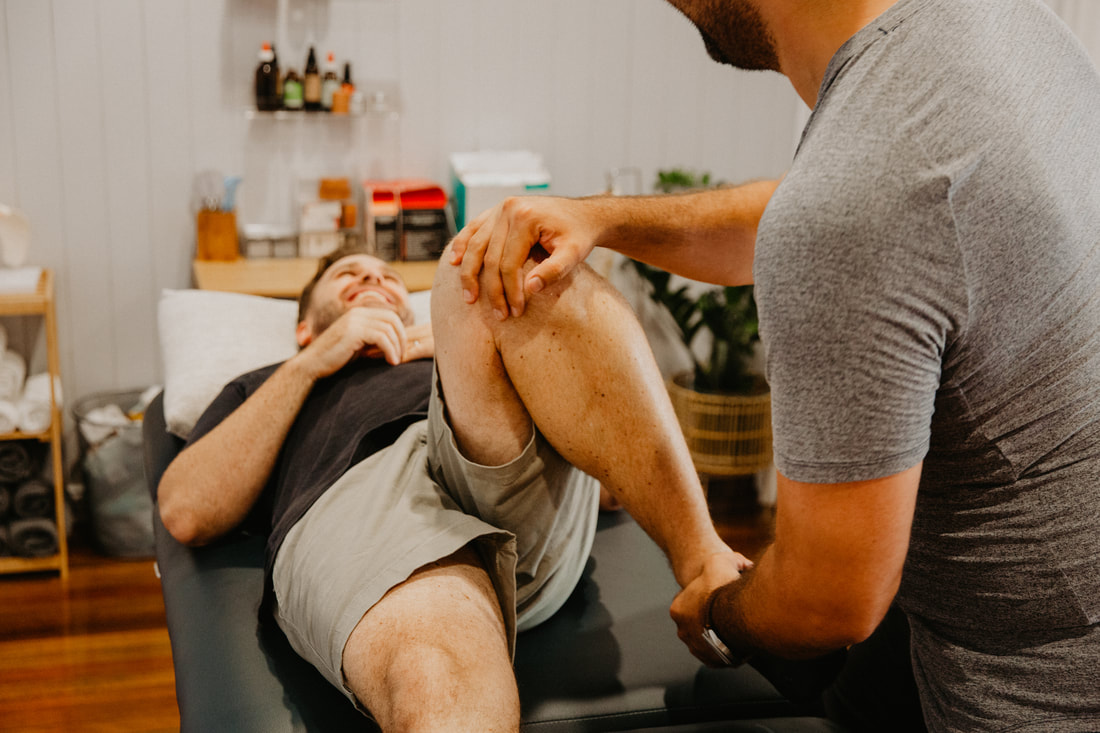Sports injury physiotherapy for AFL.
AFL and the Role of a Specialized Physiotherapist
Australian Football League (AFL) is a fast-paced, high-contact sport that combines elements from various types of football, demanding a unique blend of skills and physical attributes. It requires endurance, agility, strength, and excellent coordination.
Key Characteristics of AFL:
The Importance of a Physiotherapist Specialized in AFL:
What Are Common Injuries in AFL Players?
AFL, a high-contact and intense sport, often leads to a range of injuries:
How Can AFL Players Prevent These Injuries?
Injury prevention is crucial in AFL:
What Physiotherapy Treatments Are Effective for AFL Injuries?
Physiotherapy plays a critical role in treating and managing AFL injuries:
When Should an AFL Player Consult a Physiotherapist?
Seeking professional advice is recommended in several scenarios:
How Can Physiotherapy Help in Long-Term Injury Prevention for AFL Players?
Long-term injury prevention is vital in AFL:
What Recovery Strategies Should AFL Players Employ?
Effective recovery strategies are essential:
If you have been injured during AFL, there are many things that our Tarragindi physiotherapists can do to help get you back to being sport ready and active again so come in and speak to our friendly physiotherapists today! Feel free to give our Tarragindi Physiotherapy clinic a call on 07 3706 3407 or email [email protected]
Australian Football League (AFL) is a fast-paced, high-contact sport that combines elements from various types of football, demanding a unique blend of skills and physical attributes. It requires endurance, agility, strength, and excellent coordination.
Key Characteristics of AFL:
- Diverse Physical Demands: Players perform a wide range of activities including running, jumping, tackling, and kicking.
- High-Intensity and Contact: The game involves rapid bursts of activity and physical clashes.
- Strategic and Skillful Play: AFL requires strategic thinking, coordination, and advanced ball-handling skills.
The Importance of a Physiotherapist Specialized in AFL:
- Injury Prevention and Management: AFL's diverse and high-contact nature leads to specific injury patterns. A physiotherapist with expertise in AFL can provide tailored injury prevention and rehabilitation strategies.
- Performance Optimization: Understanding the physical and tactical demands of AFL allows physiotherapists to assist players in enhancing their performance while minimizing injury risks.
- Rehabilitation Expertise: AFL-specific physiotherapists are better equipped to guide players through recovery from common injuries, ensuring a safe and effective return to play.
What Are Common Injuries in AFL Players?
AFL, a high-contact and intense sport, often leads to a range of injuries:
- Hamstring Strains: Due to the high-speed running and sudden changes in direction.
- Ankle Sprains: Common from jumping, landing, or during tackles.
- ACL Injuries: Anterior Cruciate Ligament injuries can occur due to the pivoting and sharp movements required in AFL.
- Groin Pain: Often a result of the kicking and sudden movements involved in the game.
- Concussions: Due to the physical nature of the sport, players may suffer head injuries.
How Can AFL Players Prevent These Injuries?
Injury prevention is crucial in AFL:
- Proper Warm-Up: Including dynamic stretching to prepare the muscles and joints.
- Strength and Conditioning Training: Focusing on the core, legs, and upper body to build resilience.
- Technique Training: Learning proper techniques for tackling, jumping, and landing.
- Adequate Recovery Time: Allowing time for the body to heal between games and training sessions.
- Wearing Protective Gear: Such as mouthguards and appropriate footwear.
What Physiotherapy Treatments Are Effective for AFL Injuries?
Physiotherapy plays a critical role in treating and managing AFL injuries:
- Manual Therapy: Such as massage and joint mobilizations to alleviate pain and improve mobility.
- Rehabilitation Exercises: Tailored to the specific injury and the player’s role on the team.
- Plyometric and Agility Training: To regain strength and function, particularly after lower limb injuries.
- Concussion Management: Including rest and graded return to play protocols.
- Preventative Education: Teaching players about injury risks and preventive strategies.
When Should an AFL Player Consult a Physiotherapist?
Seeking professional advice is recommended in several scenarios:
- After an Injury: To receive a proper diagnosis and treatment plan.
- Persistent Pain or Discomfort: Especially if it affects performance or worsens over time.
- For Injury Prevention Advice: Learning strategies to minimize the risk of future injuries.
- Performance Enhancement: To improve physical capabilities and game-specific skills.
How Can Physiotherapy Help in Long-Term Injury Prevention for AFL Players?
Long-term injury prevention is vital in AFL:
- Personalized Exercise Programs: Focused on the player’s specific needs and vulnerabilities.
- Regular Screening and Assessments: To identify potential issues before they become problematic.
- Gait and Movement Analysis: To correct biomechanical inefficiencies.
- Nutrition and Lifestyle Advice: To support overall health and performance.
What Recovery Strategies Should AFL Players Employ?
Effective recovery strategies are essential:
- Post-Game Cool Down: Gentle exercises and stretching to facilitate recovery.
- Adequate Hydration and Nutrition: To replenish lost fluids and nutrients.
- Sleep and Rest: Critical for muscle recovery and overall wellbeing.
- Mental Health Support: Considering the psychological impact of the high-pressure environment of professional sports.
If you have been injured during AFL, there are many things that our Tarragindi physiotherapists can do to help get you back to being sport ready and active again so come in and speak to our friendly physiotherapists today! Feel free to give our Tarragindi Physiotherapy clinic a call on 07 3706 3407 or email [email protected]
Who to book in with:
Yulia Khasyanova
|
Zoe Harden
|
Mauricio Bara
|



